
Issue 2 |
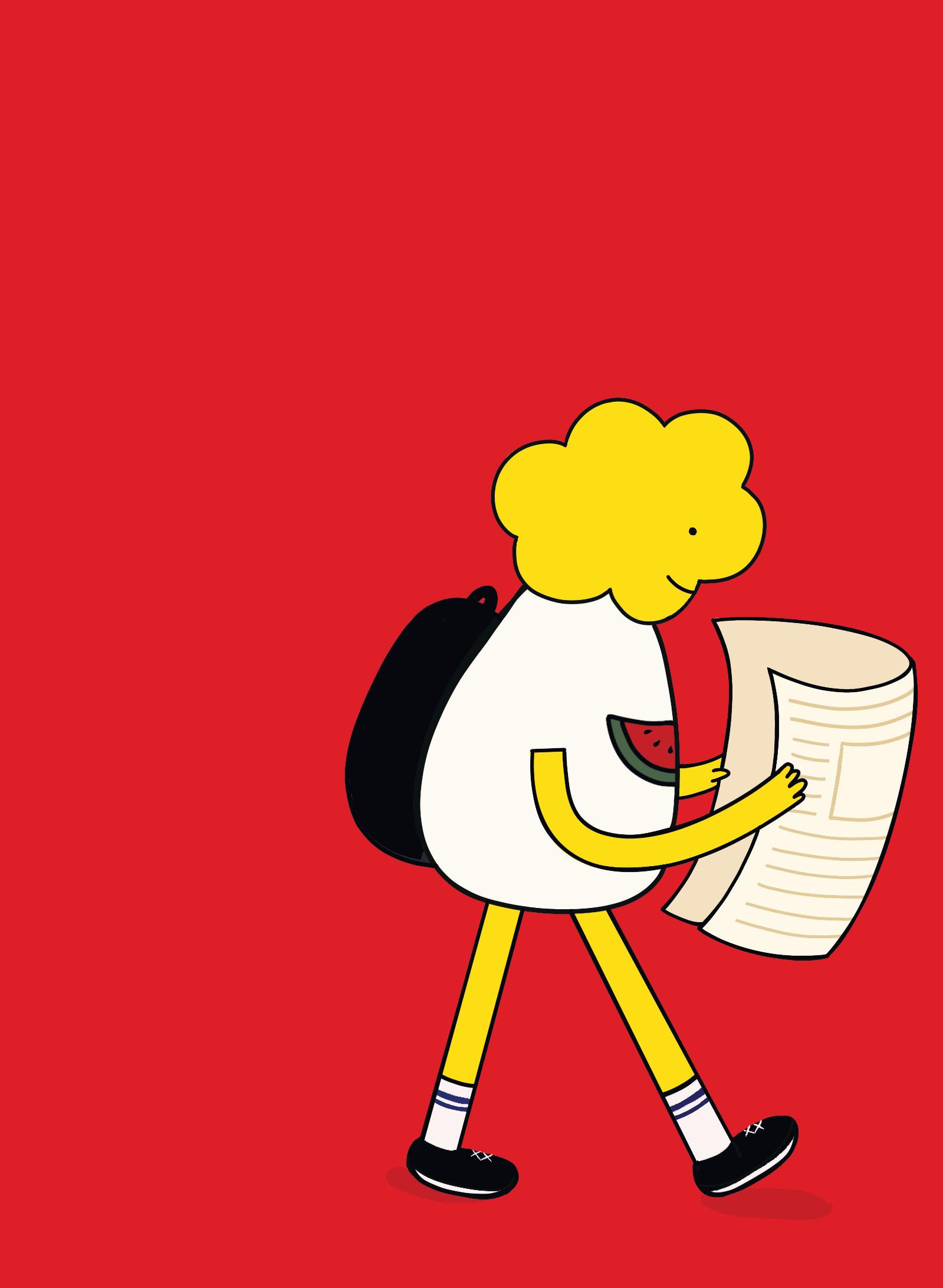



Issue 2 |



Editorial 3
Journalism Under Siege
News 4
Sudan’s Humanitarian Crisis
LaSalle CEGEP Faces Quebec Fines
6
OAP: Where Music Meets Community The Rise of Binge-Watching
Conservative Tone Shifts in the Media
DEPUIS 196 7
Commentary 10 The “McGillian Complex” Bring Back the Books
12
Compendium!
Majors Horoscopes!
Mardis Rétro, Jeudis 2000, Week-ends X-Larges… No matter the season, Café Campus is open year-round every Tuesday, Thursday, Friday and Saturday with the best themed parties!

editorial board
3480 McTavish St, Room 107 Montreal, QC, H3A 0E7
phone 514.398.6790 fax 514.398.8318 mcgilldaily.com
The McGill Daily is located on unceded Kanien’kehá:ka territory.
coordinating editor Andrei Li managing editor Sena Ho news editor Adair Nelson commentary + compendium! editor
Ingara Maidou
culture editor
Isabelle Lim
Youmna El Halabi features editor
Elaine Yang science + technology editor
Vacant sports editor Vacant video editor
Vacant visuals editor
Eva Marriott-Fabre
Nikhila Shanker copy editor
Charley Tamagno design + production editor Vacant
social media editor
Lara Arab Makansi radio editor Vacant cover design
Nikhila Shanker staff writers
Lisa Banti, Mara Gibea, Aurélien Lechantre, Anahi Pellathy contributors
Julia Apitz-Grossman, Justin Friedberg
Published by the Daily Publications Society, a student society of McGill University. The views and opinions expressed in the Daily are those of the authors and do not reflect the official policy or position of McGill University. The McGill Daily is independent from McGill University.

It has been over 700 days since the start of Israel’s ongoing aggression and genocide on the Gaza strip. The death toll keepsrising,andGaza’spopulationisdeclining.Masskillings by Israeli airstrikes and Israel’s blockade of food supplies have resulted in widespread suffering and starvation among Palestinians. Just a few weeks ago, the United Nations (UN) declaredfamineintheGazaStrip.
AsofSeptember1,therecordednumberoffamine-induceddeaths standsat361,including130children,accordingtoAl-Jazeera.
Throughout these past seven hundred days, Israel’s blatant violationsofhumanitarianlawhavebeenthoroughlydocumented by Palestinian journalists. In response, Israel has escalated its systematictargetingofthepressinGaza.
OnAugust10,Israelattackedapresstentlocatedoutsideofal-Shifa hospital, murdering six Al-Jazeera correspondents, among them renowned and beloved-by-all journalist Anas al-Sharif. The attack also killed correspondent Mohammed Qreiqeh, camera operators Ibrahim Zaher and Mohammed Noufal, freelance cameraman MomenAliwa,andfreelancejournalistMohammedal-Khalidi.
Anasal-Sharifisoneofthemanymediaprofessionalswhohave beentargetedbytheIsraeligovernmentduringthisgenocide.He wasa28-year-oldjournalistwhohadreportedextensivelyfrom the north of Gaza since the start of the genocide. He gained an extensivefollowinginthepasttwoyears,oneofhismostfamous televised sections being his jubilant announcement confirming theceasefirethispastJanuary.Inthetelevisedsegment,Al-Sharif stoodtall,surroundedbyhispeers,speakingintothemicrophone, andremovedhispressvestinasymbolicgesturemarkingtheend ofthegenocide,andhiscoverageofthescene.
Sevenmonthslater,Israelkilledhim.
Justtwoweeksafteral-Sharif’sassassination,Israelmurdered five journalists and several healthcare workers in a double-tap strikeonNasserHospital.
AsofSeptember1,Al-Jazeerareportsthetotalnumberofmartyred journalists has risen to at least 278 since October 7, 2023. These attacks are part of Israel’s widespread efforts to erase first-hand documentationofitscrimesagainstPalestinians.
AyhamAl-Sahli,PalestinianjournalistfromHaifa,wroteinan opinion piece for Al-Akhbar newspaper, “One of the major challengesinGazaisthelackofstrongindependentPalestinian mediainstitutionscapableofpreservingandmanagingsuchan archive.AsidefromtheofficialPalestiniannewsagencyWAFA, and a few others that have attempted to work in Gaza, no Palestinian body is maintaining a comprehensive record of the way. After two years, much of their capacities to continue operations have diminished, leaving the substantial archives in thehandsofforeignmediaorganizations.”
ThiscommentshedslightonmajorissuesregardingPalestinian presssafety.TheabsenceofarchivalpreservationfromPalestinian journalistsonthegenocideisdirectlylinkedtotheongoingkillingsof
journalists.Thus,thisleadstoastrongdeficitinauthentic,native,onthe-groundstorytelling,leavingthereportingupto “foreigners.”
ThetargetingofPalestinianjournalistsdatesbacktobeforethe startoftheGazagenocide.InMay2022,Al-JazeerareporterShireen Abu-AklehwasshotintheheadandkilledbyIsraelisoldierswhile coveringaraidinJenin,acityintheoccupiedWestBank.
Abu-Aklehwasaprominentname,havingreportedforAl-Jazeera for more than 25 years. Several Israeli Defense Force (IDF) statementsclaimedshegotcaughtinacrossfirebetweensoldiersand Palestinian resistance fighters, but those were quickly disproven. Abu-Akleh was wearing a press vest and standing with other journalistswhenshewaskilled.
The press vest should have been enough to protect Shireen Abu-Akleh.
ThepressvestshouldhavebeenenoughtoprotectAnasal-Sharif. The press vest should be enough to protect journalists from beingtargeted.
Since1977,theGenevaConventionhasimplementedamendments to clauses asserting the protection of journalists. Moreover, the UnitedNations(UN)websitesetsjournalismasbeing “fundamental for sustainable development, human rights protection, and democraticconsolidation.” In2012,theUNimplementedthe “Planof Action on the Safety of Journalists and the Issue of Impunity” addressing the prevention of violence against journalists and the protectionofthepress.Yetthesesuggestionsarenotlegallybinding, leavingjournalistsvulnerabletoattacksbyrepressiveregimes.
Under international humanitarian law, journalists in armed conflictholdcivilianstatusandmustbeprotected.Yet,whenitcomes to Palestinian journalists, we see nothing but frivolous words of sorrow,prayers,andeulogies.
Infact,atthetimeofal-Sharif’smartyrdom,CNNandBBCmadeit apointtolinkhimtotheIslamistresistancegroup,Hamas. LaPresse goessofarastohighlightIsraeliclaimsofal-Sharifbeinga “terrorist posingasajournalist,” despiteal-Sharif’snumerousstatementsthat hewasajournalistwithnopoliticalaffiliations.Suchaccusationsand harmful narratives have only one aim: to dehumanize Palestinian journalists,andshutdownanyandallsolidaritywiththem.
Thisbegsthequestion:whatqualifiesasbeingajournalist?And whyisitthatsomejournalists’ livesmattermorethanothers?
Al-Sharifandhispeershavetoworktwiceashardasothersto prove their journalistic integrity and commitment to the truth, while they stand strong in the face of dangers some of us will never be brave enough to even face. In addition to being systematicallyhunteddownbyIsrael,Palestinianjournalistsalso facethedelegitimizationoftheirprofession.
Asjournalistswhoarecommittedtoreportingonthetruth,we cannotremainsilentwhileourpeersinPalestinearebeingmartyred. Wemustpushfortheirsecurity,fighttokeeptheirvoicesheard,and preservetheirdignity.
Anattackononeofusisanattackonallofus.
3480 McTavish St, Room 107
Montreal, QC H3A 0E7 phone 514.398.690 fax 514.398.8318
advertising & general manager
Letty Matteo
ad layout & design
Alice Postovskiy
CONTACT
www.mcgilldaily.com www.facebook.com/themcgilldaily @themcgilldaily @mcgilldaily
scitech@mcgilldaily.com
managing@mcgilldaily.com visuals@mcgilldaily.com visuals@mcgilldaily.com radio@dailypublications.org copy@mcgilldaily.com socialmedia@mcgilldaily.com
Amidst civil war, el-Fasher remains under siege while humanitarian crisis devastates
Aurelien Lechantre Staff Writer
For over 500 days, the Rapid Support Forces (RSF), a Sudaneseparamilitarygroup, havebesiegedthecityofel-Fasher in North Darfur, Sudan. The siege has resulted in an unprecedented human crisis, beginning in April 2024,symptomaticoftheviolence ofthecivilconflictthatbrokeouta yearearlier.
In 2019, Sudan was left in turmoilaftertheSudaneseArmed Forces (SAF) (overthrew dictator and President al-Bashir, who had ruled over Sudan since 1989. The leaders of the coup, namely General Abdel Fattah-al-Burhan, head of the SAF and General Mohamed Hamdan Dagalo, or ‘Hemedti’, leader of the RSF, rejected civilian rule and overturned the government together in 2021. Burhan became the head of government with Hemedtiashisequal.Asallies,the RSFandtheSAFfought offrebel groupsinNorthDarfurjointly,but were already showing a tendency for excessive violence, notably against civilians. When collaborating, both groups were accused of perpetuating warcrimes, including genocide and ethniccleansing,notablytargeting non-Arab populations of North Darfur or Kordofan. Yet the eventual merging of the RSF into the Sudanese Army began to create tensions between the two men over who would lead the unitedforce,andthusholdpower inSudan.
Hence it was not long until hostilities began in Khartoum, Sudan’s capital On April 15 2023, thefirstshotsofthecivilwarwere fired, with the RSF and the SAF each accusing the other of firing
“The lives of children are hanging in the balance” amidst the blocking of aid and the continued food scarcity.
first.Theconflictrapidlyspreadto Darfur, North Kordofan, and the Gezira – strongholds of the RSF. Khartoum is in the hands of the Sudan Armed Forces after seizing itinMarch2025,evenifthecityis not unscathed.As the SAF were forced to retire from the capital, the army of General Dagalo took revenge on civilians, as witnessed byAnneApplebaum,journalistfor the Atlantic. Dalago’s RSF forces not only looted and destroyed the city’s infrastructure, but turned their artillery towards residential neighbourhoods as they were losing ground in the capital throughout March. Furthermore, the conflict incited new waves of ethnically motivated attacks, and violence directed towards nonArabcommunitieshassparkedup, withaccusationsonbothpartiesof thecivilwar.
Thesiegeofel-Fasherillustrates the extent of the disaster the conflict has on the Sudanese population. While over half of Sudansuffersfrommalnutrition –with 24.6 out of its 46 million citizens exposed to acute hunger and637,000peopleonthebrinkof famine – the situation is only amplifiedinel-Fashe.Supplylines havebeencutbytheRSFsiegeon the city, leaving UN food and supply convoys vulnerable and unabletoreachtheirdestinations.
Human Rights groups like the Committee for Justice and Amnesty International and UN experts accuse the RSF and SAF rebels of weaponising food. UN expertspredictthatthesituationis bound to get worse over time, especially considering the effects ofenvironmentalinstability – such asrecentseveredroughts “thelives of children are hanging in the balance” amidsttheblockingofaid and the continued food scarcity. and floods in Sudan – on the ongoinghungercrisis.
Though600,000people,overhalf ofwhicharechildren,wereableto flee el-Fasher, 260,000 people, including about 130,000 children, remain trapped in the besieged city. UNICEF chief Catherin Russell warns about the extent of children’s rights violations in elFasher, expressing that “the lives of children are hanging in the balance” amidsttheblockingofaid and the continued food scarcity. Since the beginning of the siege, UNICEF have registered over 1,100 grave children rights violations, including the killing and maiming of children but also sexual violence and abduction by differentarmedgroups. Contaminated water sources

Eva Mariott-Fabre | Visuals Editor
have led to a historic outbreak of cholera in Sudan, the worst in decades. There are over 100,000 suspectedcasesinthecountryand 2,400 cholera-related fatalities withanepicentreinel-Fasher.The current siege in addition to subsequent power and electricity cutsrendersthehealthcaresystem in the city completely inoperant, worsening the epidemic and the conditionsofcitizens.
Those who have managed to escape el-Fasher are not necessarily better off. The conflict’s rapid spread from Khartoumtoothercities inSudan has led to mass displacement . According to the last available data, over 12 million people have beenforcefullydisplacedinSudan, not including therefugeesalready living in neighbouring countries, making this the worst displacement crisis in the world. Displaced people from both elFasher and Khartoum face epidemics, hunger, and other hardships while having access to littleornoaid.
The RSF has also besieged the
city of el Obeid, a key entry point into central Sudan, as well as DillingandKadugliinKordofan –and the limited aid coming into Sudan can no longer suffice. Despite the gravity of the humanitarian situation in Sudan, the international community remains silent, according to officialsfromtheUNandAmnesty International. UN Health Chief Tedros Adhanom Ghebreyesus condemned the lack of interest in Sudan’s situation, telling the BBC “I think race is at play here.” Amnesty International has described the international response to the crisis as “woefully inadequate” Until2024,USAIDwasthemain support Sudan received. Therefore, US President Donald
Trump’srecentdecisionofcutting aid directly impacts Sudan. The cutswereradical,with83percent of the staff of USAID dismissed. For its part, the Canadian Government claims to engage itself deeply in humanitarian aid through UN agencies and trusted partners. However, that has been largely insufficient to solve the humanitariancrisisinSudan. Though the Sudanese conflict has been cast into the shadows in the international press, humanitarian activist groups like UNICEF, Amnesty International or the International Rescue Committee continue to act to ensure that civilians receive dire aidamidstthesiege.
The siege of el-Fasher illustrates the extent of the disaster the conflict has on the Sudanese population.
LaSalle College balances its duty to students’ academic independence regardless of linguistic background and obligations to Quebec law
December 9, 2024, to provide a “transition period for 20242025” to allow them to become fullycompliantthisfall.
LaSalle College, a private bilingual general and vocational college (CEGEP), admitted last December to surpassingthe716-studentquota for 2023-2024 and the 1,066student threshold for 2024-2025 set by Bill 96. Effective since 2022, the bill amended the Charter of the French Language regarding the distribution of anglophone students enrolled in CEGEP’s Attestation of College Studies (ACS) and Diploma of CollegeStudies(DCS)programs. This is penalizable by reducing government funding to the private college, which includes some of the operating costs and tuition, under chapter C-11, r. 13 of the Charter of the French Language.Asaresult,thecollege has requested negotiations with the Ministry of Education and Higher Education (MEES) of Quebec in a letter to Ministers Déry and Roberge, dated
The president and CEO of LaSalle College, Claude Marchand, told CBC that negotiations between the school and educational ministers have been delayed since August 2021. Marchand hoped to negotiate with the new minister Premier François Legault before August 18, when faculty returned to the college. The lack of negotiation prompted a cancellation of the first day of classes on August 25, which resumed the next day in order to catch the minister's attention. In the meantime, the institution is challenging MEES’s fine of $30 million in a case submitted in July 2024 to the Quebec Superior Court. The college further challenges the data used in MEES’s decision.
LaSalleclaimsthischallengewas indirectly validated by Superior Court of Quebec Judge Éric Dufour’s 2023 verdict that out-
of-province tuition hikes triggeredbyBill96atMcGilland Concordia were “not justified by existingandconvincingdata”.In the case of LaSalle College, a student expressed concern over the government’s financial threat, admitting in an interview with CityNews, “I’m worried that either they’re going to shut down the school because of lack of funding or make our tuition much higher, which is obviously going to be higher on everyone,” not exclusively for international /out-of-provincestudents.
As the only private CEGEP penalized by the government, “[i]t's really our belief that we did nothing wrong,” said Marchand in an interview with the CBC. However, other private CEGEPs negotiated their quotas, and LaSalle College did receive warnings concerning the penalization of their misconduct. On one hand, LaSalle College defended themselves on their website,
explaining that the timing of the February 2023 quotas followed after the admission of international students, which are done a year prior to the commencement of the school year. Thus, applicants had alreadybeenlegallyadmittedfor thefallof2023priortothequota amendments, and as a result, the institution had a responsibility to not cancel the students’ contracts.Ontheotherhand,the college also admitted on their website to having prior knowledge of the quotas and exceeding them. This is in line with MEES’s statement to CBC that the college “knowingly broke the law.” In other words, the court must now decide if LaSalle College’s misconduct with Quebec’s language laws warrants avoiding the potential illegality of rejecting students aftertheiradmissionscontract. Moreover, the monetary penalties totaling $30 million threaten the institution itself, as the sum makes up almost half of
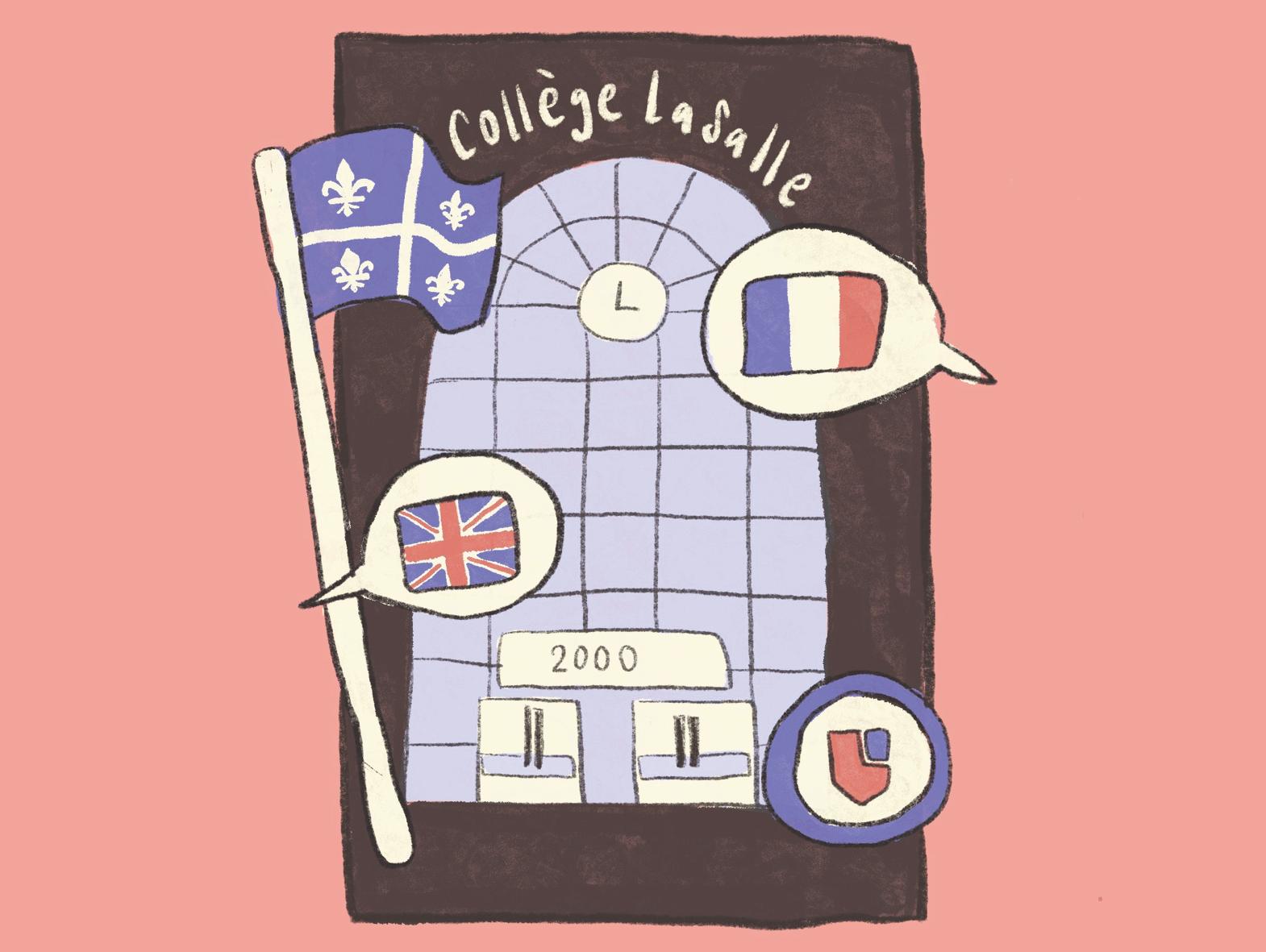
the college’s annual $70 million budget. The penalty for 20232024 totals $8.7 million and just over21millionfor2024-2025,as confirmed by the Minister of Higher Education in letters dated June 28, 2024, and June 30, 2025, to LaSalle College, which can be found on the college’s website. The college responded on December 9, 2024, asking the government for an “impact analysis” and a “ rescue plan.” They explain that, under fines, the students' education wouldsufferascollateralandthe staff’s employment would be at risk, threatening the service of specialized programs like hospitality services, as well as fashion and video game programming, which they claim are rarely offered in other CEGEPs and feed into Quebec’ s labourforce.Fewerinternational students would also decrease Quebec’s footprint, particularly in the African Francophonie and in the LCI Education network thatspansacrosstencountries. Marchand further described the MEES’s monetary penalties as “abusive,” while the Minister of Higher Education, Pascale Déry, described the college’ s protest as holding students “hostage,” especially after the MEES offered alternative negotiations that did not involve delaying the first day of school. Nonetheless, the College sent a discretionary email to its students on August 25 to inform them of the cancellation of classes and that despite this, the campus would still be open. The notice explained that, as a private institution subsidized by the Quebec government, LaSalle College could not continue to service their students when the government “assumes40percent of the cost for each Quebec student” and would not continue doing so to the same extent considering the penalties imposed. It is important to note that, according to LaSalle College, the CEGEP has not askedforadditionalsubsidiesfor international students, which was disclosed in a letter to the MinisterofFrenchLanguage. While the CBC reports that LaSalle College has adjusted their numbers for this fall per Bill 96’s quotas, negotiations regarding penalties are still underway as Minister Déry called Marchand back to negotiationsasclassesresumed.
For this piece, The McGill Daily sought to interview everysingleOAPactaswell as the members of OAP management. All parties in the above demographic who are not representedinthisarticleeither didnotrespondtoourrequestfor aninterviewordidnothaveany contactthatwecouldfind.
Lower field: bell-like peals of laughter, the faint aroma of grilled burger patties, and a snaking queue of students stretching around the perimeter of what looks like an outdoor party with an endless waitlist. Friends separated over the summerreunitewithshrieksand hugs to the exhilarating soundtrack of musicians playing just steps away. It’s no surprise some McGill students, and the event itself, call Open Air Pub (OAP)the “BestPlaceonEarth”
Since 1987, OAP’s legacy has resonated across generations of McGill students as the stage for golden memories. Ivan Zhang, onehalfoftheHeadManagement duoforthemostrecenteditionof OAP, tells us he found the first documented mention of OAP in the1980McGillYearbook,which at the time was a gathering of engineersatThreeBaresParkfor Welcome Week 1980. Now organised by the Engineering Undergraduate Society (EUS), OAP has grown exponentially in scale, taking up half of McGill’ s Lower Field and attracting thousands of McGill students, alumni, and their external plusonesalike.
The COVID-19 pandemic haltedOAPforafewyears,which wasenoughtoweakentheevent’ s influence and place in the collective McGill consciousness. “We saw a few years of not-great profitability and lower capacities post-COVID,” says Zhang. “Right after COVID, there was a bit of a lullwhereMcGillstudentsdidn’t even know what OAP was, especially the new ones coming in.” Now, after some time and vested publicity efforts, it’s back and bigger than ever, renowned for its cheap (though warm) alcohol, good food, and overall vibrantambience.
As one of the few large intercohort McGill social events, organizing OAP is, naturally, a
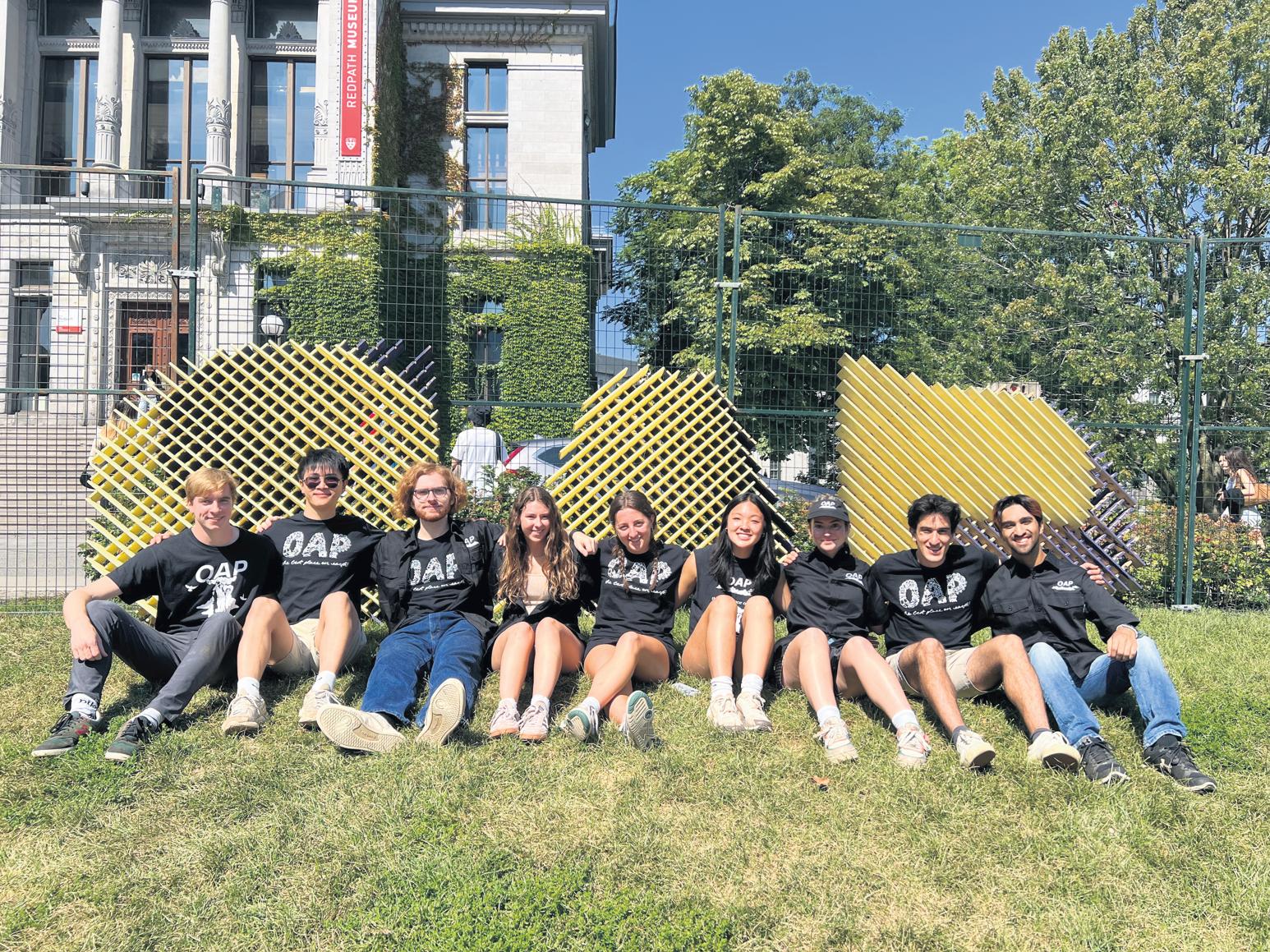
massive endeavour. From supplying various food and beverage options to recruiting managers, bands, and artists to spray the iconic OAP stage graffiti, the 13-member team works tirelessly both on and off the ground to ensure the event runs smoothly. Most recently, the OAP team has implemented new environmental initiatives which have, according to Nicole Shen, OAP’s food manager, earnedthemaGoldcertification from the McGill Sustainability Office. These developments include the introduction of new mats to protect the grass on Lower Field, the recycling of cans (rather than giving out plastic cups), and the use of propane rather than charcoal grillsforfood,amongothers. Providing the soundtrack to this one-of-a-kind student festival are a variety of bands, singers and DJs. This year, OAP hosted 26 amazing acts. From soulful harmonies and acoustic covers to head-banging rock tunes and DJ sets, there was truly something for everyone. A
fewoftheactsactuallyfoundtheir start at McGill, despite the predominantly academic environment.DJClémentGabriel, who describes his music as “dark andeuphoric”,learnedhowtomix in an hour before a party at his former fraternity. In addition, rock band Dollhouse recruited their bassist Sacha when drummer Emilio spotted him walking around with his bass at ActivitiesNightlastyear.
In fact, the significance of OAP within the McGill community means that many performers had already attended the event from below the stage. Of course, this means that they are or were McGill students themselves, lovinglycarvingouttimebetween tutorials and lectures to hone their craft. Still, the process of becoming an OAP act is complex and multilayered, with the OAP team having to sift through a substantial number of applicationsandmusicsamples.
OAPhasprovidedaplatformfor students to test the boundaries of expression and find their own unique voices. Experimental DJ
trioDanceEnginedescribesOAP as “a really nice musician[‘s] playground” where they can showcase “what they really want todo” becauseofthe “easytowin” receptiveness of McGill students to novel ideas and new music. Similarly, DJ Nina Baby closed this year’s OAP Boiler with “music that [she’s] rarely had the chance to play”, sharing her infectious electronic sound with theMcGillmasses.
OAP has even pushed new voices to the forefront. The common pursuit of a good time across all involved parties fuels OAP’s lively and accepting atmosphere. Compared to other festivals,thebeautyofOAPisthat the person on stage could also be yourfriend,whichmakesitallthe more exciting. Acoustic folk duo DaveandSarah(whosenamesare neither Dave nor Sarah) describe the sensation of performing at OAP as “not even comparable” to their previous gigs, not just because of OAP’s sheer scale but also because “everyone knew [them], which made it scarier but alsosomuchfun.”
The added layer of thrill as a result of being surrounded by familiar company rings true not justforOAP’sperformingartists, but for their patrons, who get to commemoratetheendofsummer (or winter, depending on when you go) by letting loose amidst a crowd of friendly faces. “As a student, I love that I get to hang out[atOAP]withmyfriends,and also play there as an artist,” house-inspiredDJDantesays.By playing for the community he is part of, he feels like he can stay true to the sound he loves. “You cankindoftellwhenyou’reinthe that the positive feeling people experience kind of rubs off on eachother.” Moreover, OAP’s relatively relaxed format extends music and performance not only to those who practice it professionally,buttoanyonewith loveandrespectforthecraft. “We are engineers, but we have hobbies,” jokesNellaCraft,oneof OAP’s music managers. As mentioned, many of the acts are McGill students or alumni from various faculties and disciplines.
GarageMDs, for instance, is a band made up of McGill medical students – not your usual candidates for a school band, given the rigour of their program. Moreover, Gianni, founding member of dream rock band Flying Dream, is a postdoctoral fellow in the McGill Faculty of Engineering. “Academia and research are fascinating,butthey’reveryrigid [...] Music is more free, and you [haveroomto]explore.”
That being said, OAP’s freeflow is also calculated. As one of the main goals is to keep the audience entertained, the event’ s management must curate cohesive sets throughout the event. Niney, a Montreal-based DJ, says he enjoys this aspect of thefestival. “Thegoalistobringit from zero to on the way to the techhouse,” heshares, “soIhadto get [the crowd] dancing, to sing songstheymayormaynotknow.” Nineydescribeshimselfasanavid dancer, and changing up his style to get a crowd warmed up and grooving is one of his favourite things to do. OAP allows for this partofhimtoshine. “AsaDJ,you canneverhavetoomanystyles.”
However, music serves many morefunctionsthanjustinducing hype in a crowd. It provides the soundtrack for our morning commutes and gym sessions, sets the mood at our local cafes and bars it surrounds us, giving it immense and intrinsic power. Mica, a disco music DJ says, “Music exists in many forms in every aspect of my life. Study nights, kickin’ it with friends, football games, preparing food no matter what I'm doing, there’ s always a perfect soundtrack.” With the growth of streaming services and subsequent increasedaccessibilityofmusic,it hasbecomesointegratedintoour dailylivesthatwemightnotfully appreciate its special quality.
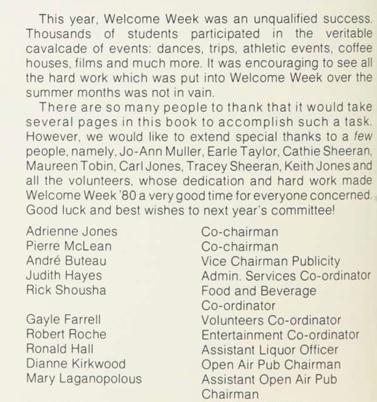
Music has the capacity to influence our thoughts and emotions, not only stimulating oursensesbutactingasamodeof idiosyncraticexpression.
Thisisnodifferentamongstthe performers of OAP, to whom music is a multi-functional tool that holds a special place in their hearts. When asked how music has enriched his life, Owen, founding member and lead
guitarist of Montreal indie rock band Willy Nilly, joked, “My depression now has a musical twist to it,” referencing songwriting’s critical role in conveying his personal realities. Dollhouse’s genre-bending songs,composedandarrangedby the entire group, also tackle a plethora of issues like mental health and activism, among others. “It’s just like, we hear you, ” says Nikita, the band’ s singer, “‘cause we all have our ownkindofstruggle.Ittranslates intoourmusic.”
And isn’t that what all this music and all this partying is about? It’s all to be heard, to be seen. While it might sound a little corny, the tunes and the booze and the (very good) corn on the cobs at OAP are all designed and calibrated for a specific purpose: connection. This is the crux of OAP, the secret sauce that makes it as celebratedandanticipatedasitis bytheMcGillstudentbody.
This sentiment was echoed by almost everyone we talked to about OAP’s impact and legacy. “Inthebackofmymind, OAP was a sort of dream,” contemplates Gabriel Jon, a folkandR&BsingerandMcGill Engineering student. “It was a big step towards my goal of not overthinking things too much and just going for things that I want to do.” Similarly, GarageMDs comments, “There’s something special about seeing your friends and classmates cheering you on, creating moments that remind you we ’re all in this journey together [...] that make this experience so meaningful.”
“Seeing the impact that [our performance] can have on people who come to the shows means the world to us,” relates
The Howlin’ Gales, a country rock band from Toronto. In an increasingly divided world plagued by individualistic ideals, to be seen by your community and to have your voice not just heard but uplifted is perhaps what we all yearn for. The bond between a performer and their audience, therefore, is made all the more sacred, as the effort and love invested by a performer into their craft is rewarded by the energy they receive from their audience. “What I hope to gain is a deeper connection with that crowd, because they’re the true supporters, the ones who come alive no matter the circumstances,” puts Clément Gabriel.
Beyond this, there are also the little points of connection between patrons, which all OAP attendees can attest to. “It’s the one place where I’ll actually see all of my friends, who you can neverreallycombineinoneroom all together at McGill,” explains ClaireLevasseur,VPServicesfor the EUS. From chatting with
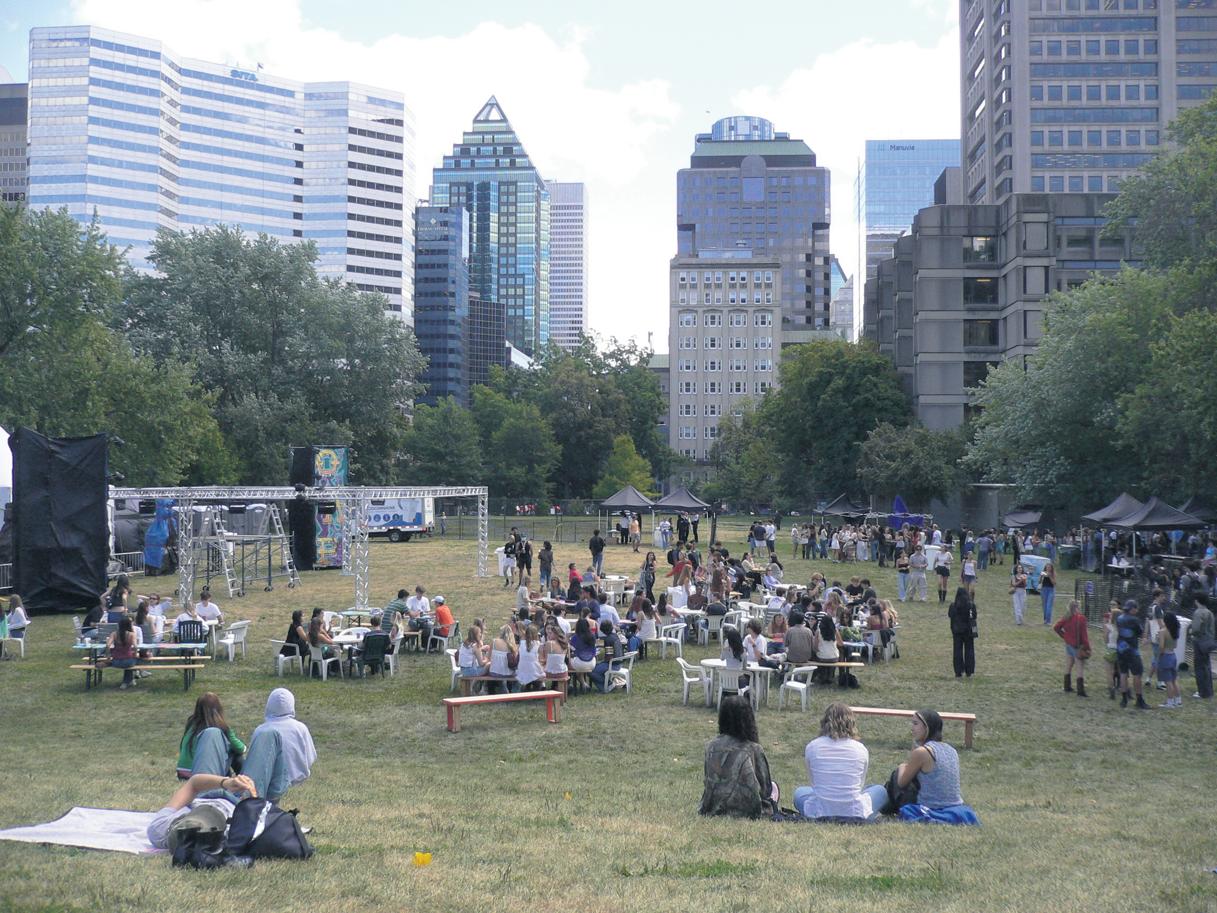
strangers in the (more often than not) hours-long line to bumping into dear friends scattered across the field, the spatial configuration ofOAPisonebuiltforinteraction.
“I hope OAP is remembered like that, where you can meet new people from so many different types of programs, so many differentplaces.
”
And not just students! Karl, a security guard from OAP, recalls feeling heartened by the warmth studentsshowedhimintheirbrief interactions entering and exiting thevenue.When checking McGill IDs,herecountsseeingastringof 6 people with the same birthday as him Valentines’ Day, which he says is rare. “At events, people usually try to avoid talking to security,” he says, “but here, I get to interact with cool people, youngpeople.
”
Love it or hate it, OAP is a McGill cultural staple that is here to stay. While seemingly just a superficial student festival on the surface, OAP’s purpose is much deeperthanthat.Asacriticalfacet of McGill culture, it weaves a golden tie between decades of McGill alumni all the way to the present, strengthening an already formidable bond that exists between us students. It promotes localandstudentartists,ensuring a steady stream of art in a world where creative is unfortunately deemed less productive and therefore less valuable. OAP also fosters inter-faculty and intercohort interaction and connection, ensuring that people get the opportunity to form new bonds and strengthen old ones. “We take a lot of pride in being able to put OAP on and create a space that so many people can enjoy, that connects everybody,” expresses Josh Negenman, the
other half of OAP’s head managementduo.
So, OAP. You may or may not haveattended,butyousureashell have heard of it. In any case, it's energetic and lively, with an atmosphere best described as electric – a buzz on your skin, a welcomehigh.
Is it really “The Best Place On Earth”? Nothing’s perfect, of course, but we’d say it comes prettydamnclose.
Discover Weekly (by the OAP Artists)
ClémentGabriel: RemixofMoonlight(AndreaOliva) -ClémentGabriel(unreleased)
Dave & Sarah: Wayside / Back In Time - Gillian Welch
Dollhouse: WhereToGo-Dollhouse(releasingsoon)
Flying Dream: Dreaming-FlyingDream
Gabriel Jon: Yellow-Coldplay
GarageMDs: SexOnFire-KingsofLeon
The Howlin’ Gales: Whitehouse Road - Tyler Childers
Mica: Lady(HearMeTonight)-Modjo
Nina Baby: Where’sMyVoice?-MitaGami&EREZ (SamerSoltanRemix)
Niney: TwoMonthsOff-Underworld
Willy Nilly: No Paradise - Willy Nilly (releasing soon)
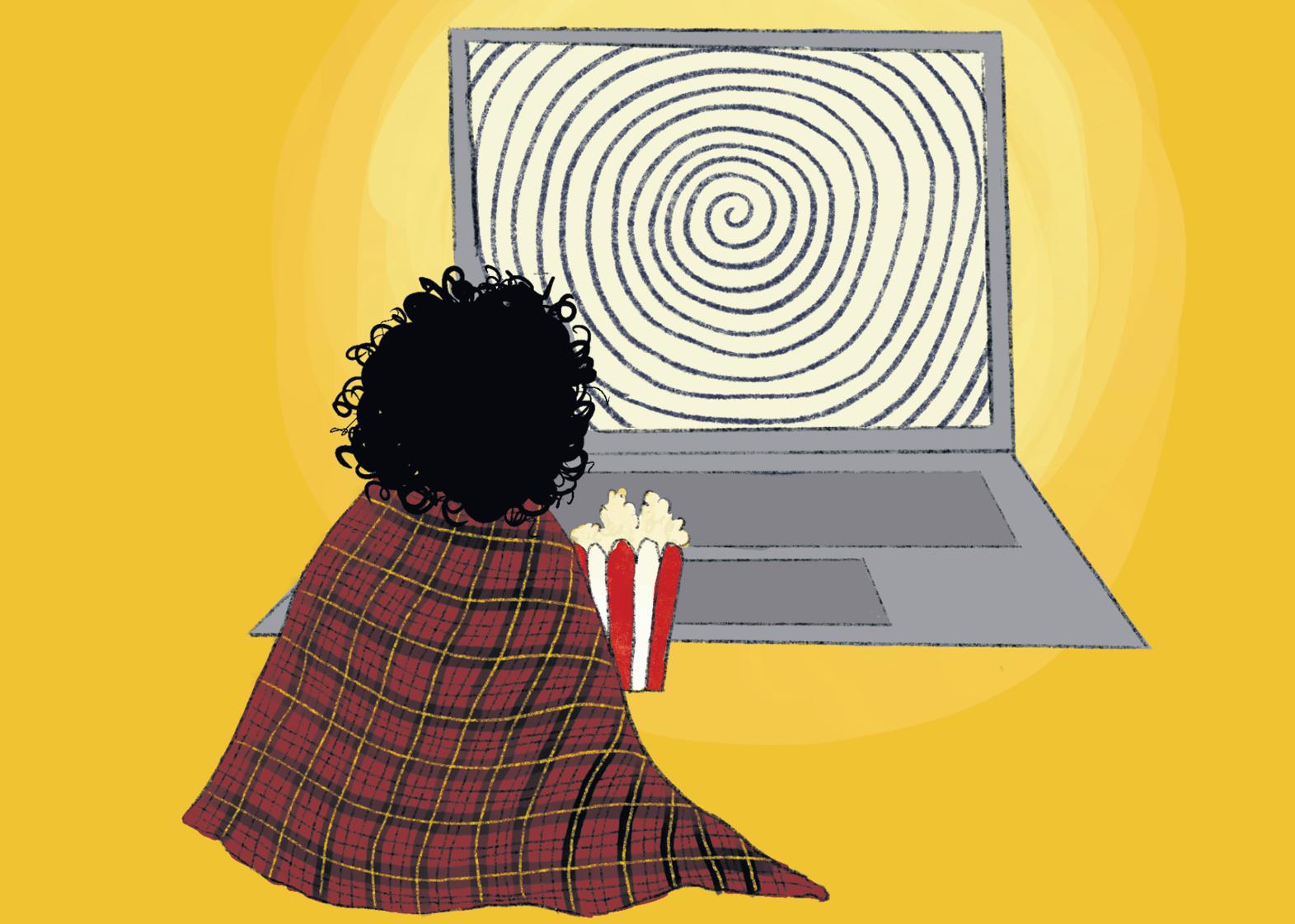
It’s happened to all of us. One episode turns into four, and before we realize it, the sun has set, the snacks are gone, and all that’s left is Netflix’s telling phrase, “Areyoustillwatching?”
Binge-watching is defined by Merriam-Webster as, “watching multipleepisodesoftelevisionin rapid succession.” The practice has become an increasingly commonpastimeinrecentyears, which is unsurprising given that every new show seems to be moreaddictivethanthelast.
However, this hasn’t always been the case. In fact, bingewatching is a relatively recent behaviouralphenomenon only seen commonly in the public since around 2013, when streaming services like Netflix boomed in popularity. Suddenly, people no longer needed to wait a week for the next episode or purchase individual box sets of DVDs, they could simply access them on these streaming sites packed with endless hours of entertainment. It was revolutionary for both the TV industry and its watchers. The COVID-19 pandemic only further increased streaming popularity, as people were suddenly stuck at home with
ample amounts of time and fewer ways to spend it.
According to the National Library of Medicine, over 70 per centoftelevisionwatcherstoday consider binge-watching as normalpractice.
So, why do we do it? Why is it soeasytobepulledinforhoursto a good show? Well, when we watch TV, it is usually for enjoyment. After a long day of classes or work, our brains crave a break, and television provides us with instant gratification. When we are doing something thatweenjoy,ourbrainsreleasea chemicalcalleddopamine,which promotes pleasure and happiness.Thisdopaminerelease makes us feel good and creates a rushsimilartothatofadrug,but onasmallerscale.Thatfeelingis addictive, and our brains will crave more dopamine in order to keep feeling pleasure; a craving which can often be satiated by watchinganotherepisode.
That said, there is more to binge-watching than solely the scientific aspect. The social nature of TV plays a huge role in why people feel the need to binge,afactorthathasonlybeen amplified by social media. When new seasons of popular shows
come out, chatter on social media inevitably follows. For example, when the third season of TheSummerITurnedPretty begandroppingweeklyonPrime Video this summer, my Instagram and TikTok soon became flooded with funny or exciting reels related to the show. These videos quickly started online conversations and disputes such as whether people are “Team Jeremiah” or “Team Conrad,” and created a sense of investment in a show that viewers may or may not have even previously watched themselves. I suddenly felt compelled to catch up on the new season so I could understand what people were talking about, and found myself binging four episodes in one evening. Whether fueled by a fear of missing out or a fear of having the plot spoiled for them, people feel the need to catch up onnewshowssotheycanbepart oftheseconversations.However, we must recognize that these conversationneverinfluencedus in the same way before we had accesstosocialmedia24/7. Others use binge-watching to escape reality and transport themselvesintoadifferentworld
for as long as possible. The more time we spend with familiar TV characters, the more we begin to feel like we really know them. Thesecharactersstarttofeellike companions, and we become so invested in their stories that turning off the TV can make us feellonely.Interestinglyenough, binging doesn’t only come with feel-good shows either. Shows thatcausemorenegativefeelings likeanxietyorfearareoftenjust asaddicting,astheyproducethe same sense of escapism, if not one that is even more intense. This behaviour can even feed on itself, with people watching more in order to soothe the stressful feelings that binging causedinthefirstplace.
Now that we know why this behaviour occurs, it’s important to note the effects it might have on our bodies. While it is often used as a light-hearted term, binge-watching can be more seriousthanjustacasualpastime. Similar to gambling, it can turn into a real behavioural addiction, which are accompanied by a lack ofself-control,regretorguilt,and neglect of responsibilities. Additionally, avoiding real-life problems by watching hours of TV can lead to social isolation.
Thisisassociatedwithdepression and feelings of loneliness or guilt when the episodes are over. In regard to physical health, it is unsurprising that binge-watching goes hand-in-hand with a sedentary lifestyle, which is one ofthemostharmfulthingswecan do for our bodies. Sitting and watchingtelevisionforfourhours or more per day can over time increasetheriskofcardiovascular disease by 50 per cent compared to those who sit for two hours or less. Inactive sitting might be linkedtoa25percenthigherBMI index in young adults, which can lead to various serious health problems.Finally,binge-watching negatively affects our sleep. After watching hours of TV, our brains struggle to fully shut down, leading to poorer sleep quality, increasedfatigue,andinsomnia. These are all very serious mentalandphysicaleffects.That beingsaid, itisalsoimportantto note that staying up one night and watching a season of your favourite show with friends is not the end of the world. These effects result from repeated behaviour over time, so it is best to be mindful but not to stress toomuch.
For the reasons above or even for their own benefit, not every show releases all episodes at once on streaming services. Some,like TheSummerITurned Pretty, still follow the classic weekly schedule release in order to combat binge-watching and create suspense leading up to each episode. Similarly, Love Island USA, which captured millions of eyes this summer, released one episode per day, multiple times per week. This methodcanbeverysuccessfulas it keeps people engaged in new drama and conversation while giving them something to look forward to. Even the busiest viewers are more likely to set aside an hour a day for a new episode than to commit to watchingfiveinarow.
At its best, binge-watching offers us copious amounts of entertainment, an escape from reality, and a connection to a larger community around the world. At its worst, it can allow us to slip into unhealthy habits that leave us guilty, tired, or isolated. The key is to enjoy our favourite shows in moderation. Whether that means watching oneepisodeperdaytounwindor prepping for the occasional weekend marathon, we can keep thejoyoftelevisionalivewithout creating a bad habit. After all, television should enhance our lives,notreplacethem.
Anahi Pellathy Staff Writer
Over the course of the summer, we saw trends come and go, as they are wonttodo.Somewherebetween the fashion fads, viral recipes, and throwaway memes lay something trend-adjacent: talking points.
From Sydney Sweeney’s jeans as a eugenics dog whistle to tradwife aesthetics permuted into “princess treatment,” media discourseshavefeltinescapable, abeastoftheirown.Theymodel a new format of engagement that has become increasingly commononline,andspellaclear trend towards conservative cultural dominance.
This “discourse” is not a conversationenmasseoramesh of individual interactions. Rather, it consists of two clashing self-contained dialogues and conservatives are setting the terms.
These media blackouts instances where it seems the wholeoftheinternetisshouting about the same thing to no avail have become a strategic tool of the right to dismiss and delegitimize liberal critique. This successfully spews further division and paints liberals as fragile and perpetually outraged, lessening the credibilityofthe “wokeleft” that can no longer unite around a cohesive political agenda, whereas the right can and does.
The result? Conservatives are winning the media discourse.
Take the response to the Sydney Sweeney American Eagle ad. The infamous ad featuresthewhite,blonde,blueeyed actress posing in a pair of AE jeans and slowly drawling that “genes [“jeans”] are passed down from offspring to offspring mygenesareblue” as the camera zooms in to her blue eyes. Tagline “Sydney Sweeney has great genes” feels loaded when the wordplay hinges on Sweeney’s presentation of “desirable” white, blonde, blueeyed genes.
Mass amounts of backlash circulated following its release, deeming it creepy at best and endorsing eugenics at worst.
Thencamethesubsequentwave of reactions: a mass of comments, tweets, and posts saying people were reading too much into it, that American Eagle had just happened to pick a blonde, blue-eyed actress, that
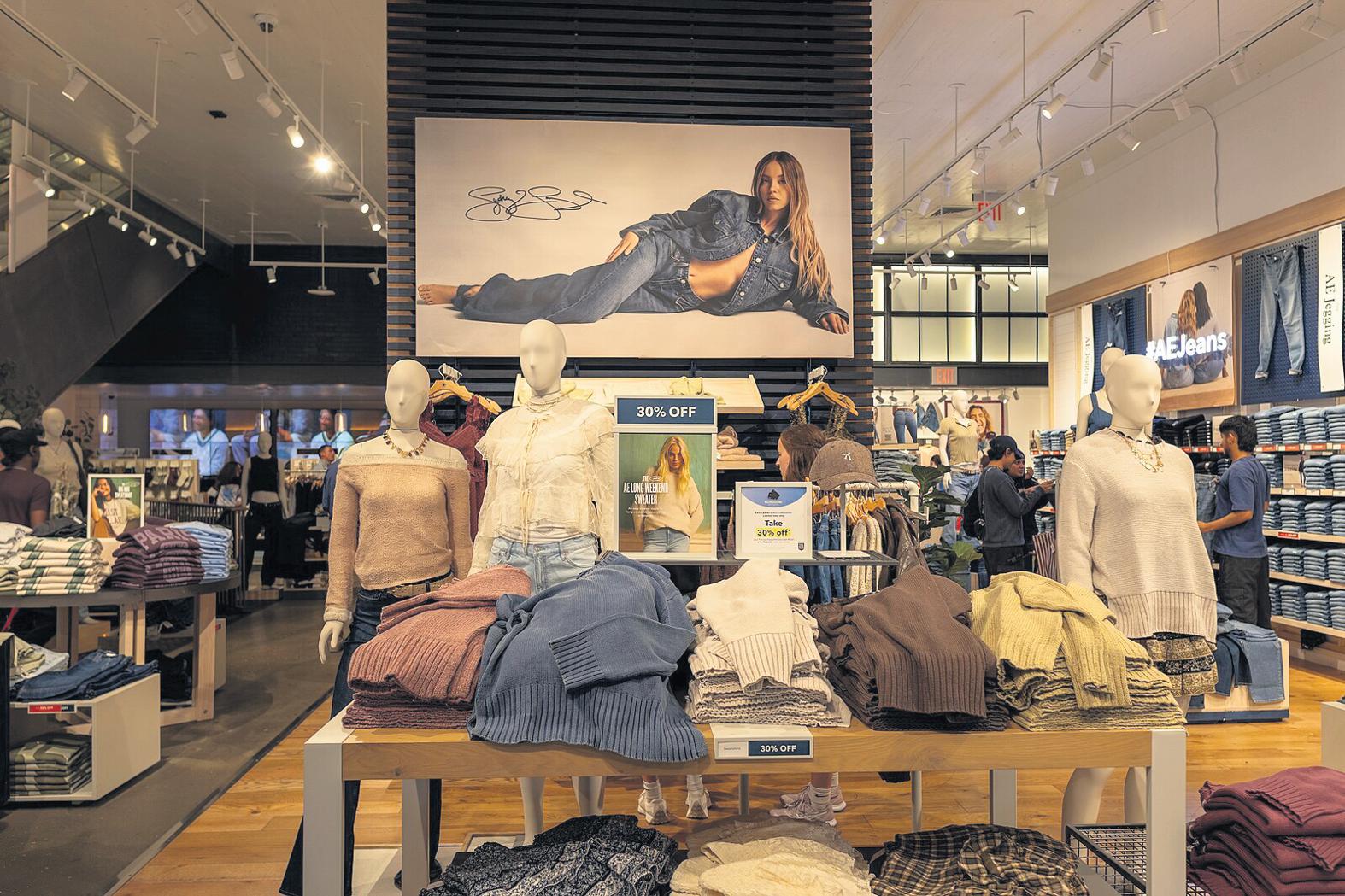
the dreaded phrase ”it’ s not that deep.” That wave of dismissal fueled the discourse itself, and by insisting critics were overly sensitive, conservatives set the terms of debate and ensured the ad was replayed, argued over, and circulated even more widely.
Exploiting humankind’ s instinct towards the extreme is no novelty for social media creators. As actions once considered progressive are increasingly normalized, the countercultural alternative is radicalconservatisminorderto amass likes and views. Cue the riseoftradwifecontent:TikTok user Courtney Joelle’s video, in which she describes refusing to even speak to a waiter before her husband arrives at the restaurant as “princess treatment,” has a whopping 8.2 million views at the time of writing.
The “moment” here is not the video itself, but the reactions that have caused videos such as these to rack up millions of views and countless comments. Viewers either condemn or praisethecreator’scommitment to traditional values and
femininity. Extreme conservatism paired with a spectacle-driven algorithm is a recipe for engagement from hate-watchers and sympathizers alike. These seemingly random viral flareups are engineered to spark backlash, and the resulting liberal outrage becomes the fuel to boost conservative visibility and reach.
Amidst an atmosphere of outrage and radical extremes, conservative-coded imagery settles comfortably into the mainstream.
Audience engagement with each of the summer’s spectacles indicateapendulumswingaway fromthe2020cancelcultureera of “woke censorship,” which pushedpoliticalcorrectnessand positioned everyday people at the mercy of an internet mob. This was a time when it felt like the entire internet was against the same things, regardless of private, personal beliefs. Backlash was quickly quieted, and TikTok Trump supporters were no match for the crashing wave of the PC police. Framed as accountability, cancel culture instead stunted personal
growth, pushing people into silence out of fear of misstepping and setting the stage for today’s post–cancel culture era.
Now, we’re seeing the opposite: no one is afraid to say anything. Emboldened by Trump’s unconventional approach to public speaking, a tone shift has taken place in American media that has been quicklyexportedworldwide.We are now in what some might describe as the post-cancel culture era.
Neitherextremeispreferable, but it’s important to notice how the tide has turned. Outragedriven discourse online has shifted from a cultural tool for progressives to being strategically weaponized by the right. “Ragebait” contentandits subsequent “it’s not that deep” dismissals serve to delegitimize liberal voices and normalize conservative values in mainstream culture. If the summer ’s talking points can teach us anything, it is to recognize the patterns that keep us trapped in outrage cycles and note who really benefits from them.
“Sydney Sweeney has great genes” feels loaded when the wordplay hinges on Sweeney’s presentation of “desirable” white, blonde, blue-eyed genes.
Lisa Banti StaffWriter
When McGill was named the top university in Canada in this year’s QS World University Rankings released this June, the reaction from students was a mix of pride, shrugs, and a few smug grins.Forsome,itwasvalidation proof that the long nights at the Redpath library and the endless MyCourses submissions really are part of a top-tier institution. For others, it was just another label, another addition to McGill students’ alreadyconfidentego.
The so-called “McGillian complex” isn’t new. Ask anyone who has spent time at McGill, and they’ll likely tell you about the way students compare themselves sometimes jokingly, sometimes seriously to those at the University of Toronto, the University of British Columbia (UBC), and evenouranglophoneneighbours at Concordia. A new ranking only gives that culture further validation.Astudent,whochose to remain anonymous, said, “We already thought we were numberone.Nowit’sofficial.”
Rivalriesbetweenuniversities are nothing unusual. Harvard and Yale, Oxford and Cambridge; students have always measured their schools against others. But at McGill, that competitiveness sometimes

slips into something sharper. Comments like, “At least we didn’t end up at Concordia” or, “UBC is basically just McGill with better weather” aren ’t hard to overhear in downtown Montrealcafés.
PlatformslikeSpotted:McGill show just how baked-in rivalry istostudentculture.Thepageis essentially an anonymous confessions account on Instagram, with over 21,000 followers and more than 1,200 posts that capture the tone of campus life. Anonymous posts like, “Concordians infiltrating the confessions form yet again…” spark comments that arefunny,casual,andfullofthat playful tension that makes the “McGillian complex” so visible insocialmediabanter.
Itisn’tonlystudentswhokeep this rivalry alive. The university itself profits from it. Walk into the McGill Campus Store and you ’ll find items that play up the hierarchy between schools like the McGill Pride Shot Glass, which ranks universities as if they were measurement lines, with Concordia at the bottom andMcGillproudlyatthetop.By selling merchandise that turns competition into a joke, the administration reinforces the very culture of superiority that studentsareaccusedofcarrying.
The new ranking risks amplifying these attitudes. While some students see the banter as harmless, others point out that these jokes feed into an
elitist culture. Concordia, for example, has a long history of excellence in creative fields, arts, and community-based programs opportunities that McGill doesn’t necessarily have, such as a dedicated Visual Arts program. Reducing the success of a university to a punchline overlooks the complexity of the different factors that make universitiesthrive.
The real question is how should McGill students respond tothisrecognition.Pridedoesn’t have to equal arrogance. Being proud of our institution’ s reputation can coexist with respectforotherschools.Yettoo often, the McGill identity has leaned on dismissing others rather than building its own communityculture.
One student, who wishes to remain anonymous, put it simply: “It’snicetobeatthetop, but it feels like nothing on campus will change. We still struggle with the same issues as before.” Another noted that the ranking made them more conscious of how McGill is perceived outside Quebec: “It’ s good for the brand, but it shouldn’t make us forget the cracksinthefoundation.”
At the same time, it’s worth asking what exactly this number one title really means. Rankings likeQSarebasedonmetricssuch as academic reputation, facultyto-student ratios, and internationaloutlook.Theymake for glossy headlines, but they
All members of the Daily Publications Society (DPS), publisher of The McGill Daily and Le Délit, are cordially invited to its Annual General Assembly: Wednesday, October 1st @ 6:00PM McGill University Centre, 3480 Rue McTavish, Room 107
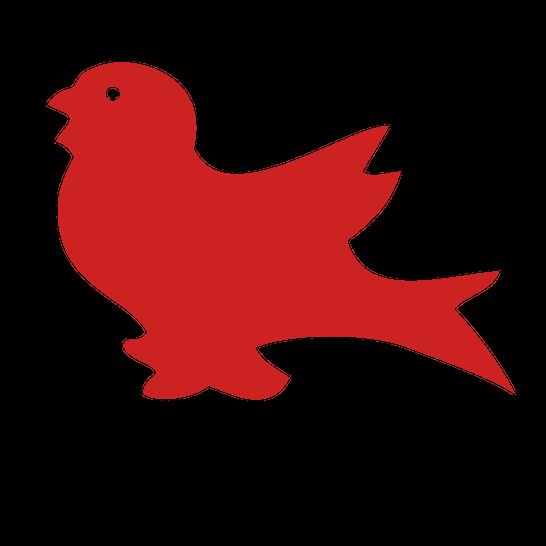
don’t magically fix the problems students within universities face every day. Tuition isn’t going down it’s actually more than doubled in Canada since 2006. The shortage of advising appointments isn’t shrinking. Thenever-endinglineatRedpath Cafécertainlyisn’tdisappearing. Whattherankingdoeschange is perception, both externally and internally. Internationally, McGill now has another stamp of credibility to attract students and funding. On campus, it shapes how students talk about themselves, their degrees, and their job prospects. But perception alone doesn’t improve the lived experience of being here. That tension, between reputation and reality, is part of what fuels the “McGilliancomplex.”
So, what should McGill pride actually look like? Rankings like QS are based on metrics such as academic reputation, faculty-tostudent ratios, and international outlook. They make for glossy headlines,buttheydon’tmagically fix the problems students face everyday.Tuitionisn’tgoingdown it’sactuallymorethandoubled in Canada since 2006. The shortageofadvisingappointments isn’t shrinking. The never-ending line at Redpath Café (and maybe Gerts)certainlyisn’tdisappearing. Being ranked number one doesn’t guarantee that we’ll act likethenumberonecommunity. It doesn’t erase elitism in student culture or solve
inequities in access to education. What it does offer is achancetoaskourselves:arewe living up to the title, or are we just polishing the ego of the “McGilliancomplex”?
If McGill students are serious about embracing this recognition, it might be worth stepping back from the rivalry game.Insteadofmeasuringour success against the University of Toronto or UBC, we could focus on what actually makes this place worth being proud of. Is it the ranking, the diversity of students, the city we live in, or the communities we build on campus?
McGill’s new title is an opportunity not just to brag, but to rethink how we define excellence and honour. The rankingwilleventuallyfadeinto nextyear’scycle,buttheculture we create around it is ours to decide. The “McGillian complex” doesn’t have to mean arrogance. It could mean something else entirely: a culture of confidence without condescension, and of pride without the put-downs. Maybe that’s the kind of number one reputationworthholdingonto.
The general assembly will elect the DPS Board of Directors for the 2025-2026 year.
DPS Directors meet at least once a month to discuss the management of both Le Délit and The McGill Daily and get to vote on important decisions related to the DPS’s activities.
The annual financial statements and the report of the public accountant are available at the office of the DPS and any member may, on request, obtain a copy free of charge.
Questions? Send email to: chair@dailypublications.org

Justin Friedberg
CommentaryContributor
The sight of empty and disassembledbookshelves leaves me demoralized every time I climb McLennan Library's seemingly endless central staircase. The removal of 2.38 million books and other physical media from McGill’s downtown campus represents a distressing overcorrection of the library’ s notorious lack of seating, threatening students’ free and accessible access to information and turning our libraries into glorified internet cafes (minus the pastries and coffee).
The transfer of around 60 per cent of McGill’s physical collection to an automated 4,200 square metre off-site facility was carried out alongside the ambitious Fiat Lux Project, which aimed to “create a new central Library complex dramatically reconfigured to suit modern users. ” Announced in 2019 as part of the bicentennial ‘Master Plan’ to wholly revitalize McGill’ s campuses, Fiat Lux promised to “ more than double available seating” in a newly incorporated McLennan-Redpath Library. ButFiatLux Latinfor ‘let
there be light’ was prematurelysnuffedoutwhen McGill President and ViceChancellor Deep Saini announced, in a September 2024 Senate meeting, that the administration had reached the “painful decision” to suspend the $33 million project. Saini attributed recent project cuts, including theterminationofFiatLux,to the Quebec government’ s decision to significantly increase tuition for out-ofprovince students. This decisionhasdecreasedoverall enrollment revenue and helped balloon the university’s deficit, from a projected $15 million in the 2025 fiscal year to a staggering projected $45 million in the 2026 fiscal year. In early February of this year, McGill released a statement tersely reflecting on the Quebec government’s actions: “It has taken more than two centuries to build this worldrenowned university, but just over a year for these decisions to harm it deeply.” During the aforementioned Senate meeting, McGill Librarian and Senator David Greene inquired whether or not the Fiat Lux project was “suspended permanently, or if there was an intention to resume it in the future.” The
question was met by a resounding shrug, with Senator Fabrice Labeau responding that “the University would continue exploringoptionsforhowtobest utilize available space to meet the evolving needs of students and other library users, though there was no timeline for these efforts.” With plans on hold indefinitely, when will the 400,000 books planned for returntoarenovatedMcLennanRedpathcomplexbesentback?It doesn’ttakeakeeneyetoseethat there aren’t 4,000 books in McLennan,letalone400,000. What we’re left with are the remnants of an unfinished vision. Walking slowly down corridors of empty white bookcases as the tube lights above me eerily flicker to life, a sense of loss pervades my thoughts. Not only because the fluorescentblinkingremindsme of a haunted house, but because technology continues to push the physical medium towards obsolescence. I’ve been asking myself: “What is a library without books?” It’ s a community centre or study hall, but no longer a library. Those naked shelves stand as monuments to a dying age. The physical book had a good run of over 4,000 years anyway, right? But with threats to internet access,thephysicalbookmaybe more essential now than ever
before.Irecentlyfinishedreading the book Apple in China by Patrick McGee, chronicling the fascinating and alarming story of how China allowed for the rise of Apple and, perhaps more importantly, how Apple played a pivotal role in the rise of China as the world’s manufacturer. While reading the book, I learned about the erection of China’s so-called ‘GreatFirewall,’ which limitsand surveils their citizen’s internet access, and Apple’s surrender to the whims of that same authoritarian police state: “ when Beijing called for virtual private networks to be removed from the China App Store, Apple complied, and 674 VPN apps were deleted. This was a massive concession, placing all iPhone users in the country in a splintered-off version of the internet” (298). The playbook is clear: limiting information limits resistance. The internet is not as secure as some believe it to be, even from the institutions we trust with our personal data. You may say this repression of freespeechcan’thappenhere,but take it from an American abroad: it could. The rise of an antiinformational age at home following the re-election of President Donald Trump, along with increasing book-bans across the country, means that free and easy access to university libraries and their physical contents
should be enthusiastically protected. I agree that ample space must be made in our libraries for students, but when does principle overtake practicality? In a world on a collision course with AI, reliable information is soon to become an even more valuable commodity than it already is. Though Fiat Lux was not unreasonable for its promise of increased space, the removal of nearly 2.5 million books from the immediateaccessofMcGillstudents isadistressingoverreachthatisonly underscored by the project’s failure to proceed.
I came to McGill in 2023, and was one of the last to see the Library before its hollowing. I remember my neck hurting from walking up and downtheaisles,stunnedatthesheer sizeofMcGill’scollectionandproud to be a student here. In the free time that a freshman had, which was plenty, I would sit down and flip through whatever interested me. I miss that.
Though a sleek remodelling is worthwhile in theory, the Fiat Lux approachtoseparatinglibrariesfrom their books removes from libraries their very souls. Books are as much a symbol of the appreciation of knowledge as they are an instrument to enhance understanding. A library without its books is a car without wheels:youcansitdown,butitwon’t takeyoufar.

Aries (Mar 21Apr 19)
You’re a poli sci major looking for an internship.

Taurus (Apr 20May 20)
You’re an environmental science major Who hugs trees.

Gemini (May 21Jun 20)
You’re a business major who spends all day on linkedin.

Cancer (Jun 21Jul 22)
You’re an english lit major who’s had enough of 17th century romances.


Leo (Jul 23Aug 22)
You’re an international development major and you don’t know how to use a hammer.

Virgo (Aug 23Sept 22)
You’re an engineering major and you think pi is three.
Libra (Sept 23Oct 22)
You’re a physics major who can’t replace a lightbulb.

Scorpio (Oct 23Nov 21)
You’re a sociology major, and you go “Mhm, society.“

Sagittarius (Nov 22Dec 21)
you’re a psychology major and you have no idea what the brain is.

Capricorn (Dec 22Jan 19)
You’re a biology major and your hands are ruined from formaldehyde.
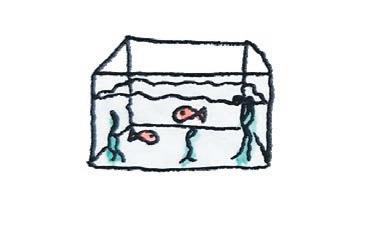
Aquarius (Jan 20Feb 18)
You’re a classics major before the INVENTION OF THE time machine.

Pisces (Feb 19Mar 20)
You’re an education major but you’re the one being educated (?)